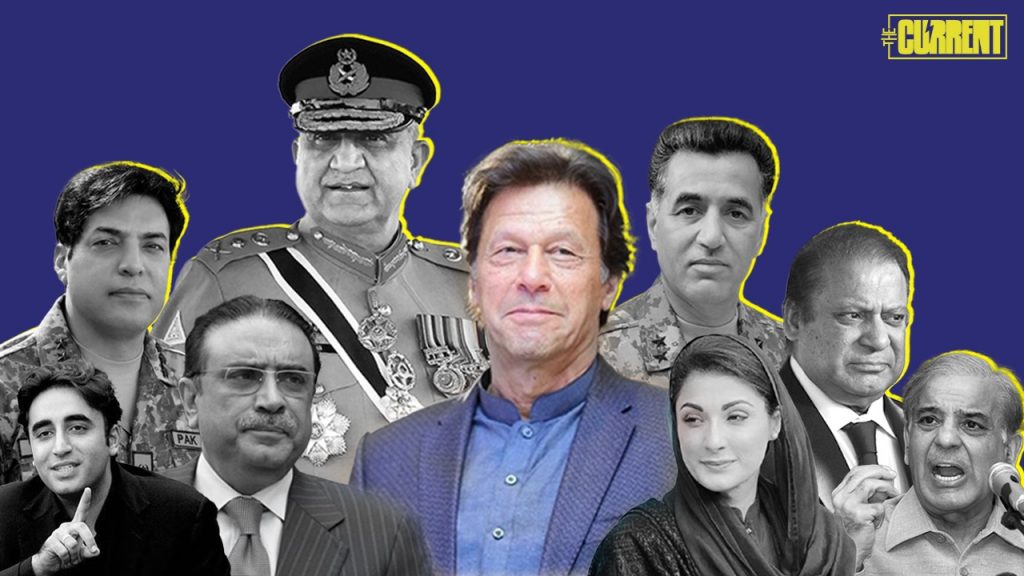
Political Polarisation: A Societal Downfall
“The age of cooperation is over. The disagreement runs too deep, the debates are too nationalised, the coalitions are too different, the political identities are too powerful.”
Political polarisation’s aftermath was highlighted by Ezra Klein an American journalist in his book “Why We Polarise”, which is quite relateable to the prevailing circumstances. Despite all the development and innovations by mankind, lack of cooperation and intolerance have become prominent in society. Pew Research Center has found no evidence about the rigidity in the opinion of the general public over the decades while researching generational phenomena in Americans. Rather than this, the association of people with political parties based on their ideological differences is noticeable and has been augmented. This is what we have seen in the political scenario that currently prevails in Pakistan. The whole politics revolves around two narratives: Imran bhagao mulk bachao versus Haqiqi Azadi. Looking at the current economic situation, nobody is really interested in declining foreign reserves, skyrocketing inflation, and the risk of default. Political parties are so indulged in their political rivalry that the culture of healthy competition and democracy is now just a dream.
This phenomenon is not only based on any country’s economic, social, and cultural circumstances. After the political and economic crisis in Sri Lanka, Anti-government strikes and protests have been witnessed. Despite the curfew, a considerable number of people attacked not only the president’s office, PM Rajapaksa’s home and official residence but also his loyalist property. Sri Lanka’s case depicted the worst form of political polarisation.
We know that the internet is an information superhighway, which is often misused to spread irrational beliefs and demolish the opponent’s argument.
In the presidential era of Donald Trump, polarisation was strengthened. Timothy Snyder, an American Historian and Richard C. Levin professor at Yale University summarises the former president’s ruling period in his Book “The Road to Unfreedom: Russia, Europe and America” as “Trump governed just as he had run for office: as a producer of outrage rather than as a formulator of policy”. The Capitol Hill incident is also an example of political differences when a crowd chanting the slogan “Fight for Trump” enters Capitol Hill after confronting the police soon after then-President Trump’s speech. Overall, his governing period fueled political polarisation, and racism and imposed tough immigration restrictions. America being a superpower has also suffered from the adversities of political division.
In both cases the economic situation is quite different, one is pretty much stable and the other is on the verge of default. From this, we can infer that the economic situation cannot be held responsible for this political divide. However, the democratic system prevails in both countries where the general public has the authority and participation in the decision-making. But the rationality of the voters can be manipulated through the agenda set by their leaders which makes the public behind them all the way.
Taking into consideration the political circumstances; rather than the political stability, the narrative built by the political actors is what has created the political partisan. Looking at the political spectrum of Pakistan, polarisation, and populism goes hand in hand that creates an environment of extremism that has been increasing leap and bound. Due to the prevailing wave of political polarisation, democracy in Pakistan is sailing close to the wind. Living in a society of haves and have-nots, the political inclination with intolerance towards others’ opinions can prove to be a minefield. We have seen people sharing heated arguments which sometimes leads to an actual confrontation in any kind of social or public gathering. In protests and political gatherings, fights between the public and police have become habitual.
Political Polarisation: A Societal Downfall
Political polarisation is not only the absence of tolerance but several factors are associated with it. Intolerance, irrational beliefs, and overconfidence are the root causes that have been identified by political psychologists in the book “The Psychology of Political Polarisation” by Jan Willem Van Prooigen, an associate professor at VU Amsterdam University.
Focusing on the other causes: irrational beliefs and overconfidence, let us separately analyse this from Pakistan’s perspective. We know that the internet is an information superhighway, which is often misused to spread irrational beliefs and demolish the opponent’s argument. Nowadays, this has been used against the Army and Judges in the form of setting false agendas with fake news and disinformation which ultimately malign the institutions. It is a new security threat to the democratic system and damages its reputation, making our institutions weaker. Destructing overconfidence of both political candidates and the voter: overconfidence of political candidates results in irrational decisions where political rivalry wins over the national interest. It can be noticed that whether it is Pakistan Tehreek Insaf, Pakistan Muslim League (N), Pakistan People’s Party, or any other political party, a follower belongs; they are very passionate about their leaders. Follow them blindly and in overconfidence, they start to defend them by attacking the opponent’s identity in overconfidence.
We have seen people being passionate about their political party, often mingling it with patriotism which is a misrepresentation. Being passionate about your party is not bad at all but what we miss is courtesy. A balance of these two opposite traits: passion and courtesy serve as a whole which is a dire need in every society. On the leadership level, these two traits are crucial to protect the national interest and integrity. That is why our society has undergone a moral decline that continues.
Source:https://dailytimes.com.pk/1087765/political-polarisation-a-societal-downfall/

